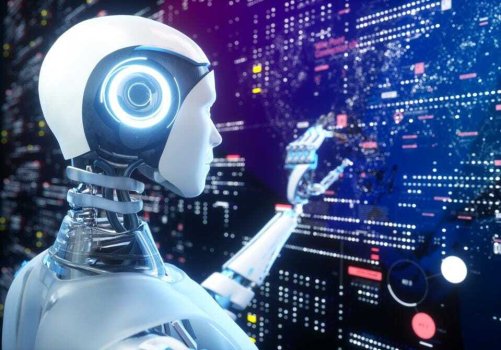If you’ve recently eaten at a fast-food restaurant, driven on a toll road or checked out groceries at the supermarket, you may have noticed one thing they all have in common: Many people who used to help you have been replaced by machines.
Most people regard this as simply the price of progress. As new technology is introduced, it displaces an older technology, along with the jobs it created. What is often overlooked is that the new technology, whatever it happens to be, typically brings with it new jobs for those with the smarts and the skills to take advantage of the new opportunities at hand.
The same holds true for artificial intelligence. In its recent Future of Jobs Report, the World Economic Forum estimated that AI will replace some 85 million jobs by 2025. The same report, however, concluded that some 97 million new jobs would be created in the same timeframe due to AI. While the healthcare industry is expected to benefit most from this change, with AI-assisted healthcare technicians seeing a tremendous upward surge, all industries will likely be affected. And while many of those new positions—notably machine learning engineers, robotics engineers and data scientists—will require advanced degrees, the demand for less-skilled jobs, such as AI maintenance, will also skyrocket.
The interesting thing about this AI-inspired change is that while virtually no one denies it is already underway, some mistakenly view today’s AI as all that it will ever be. In reality, today’s AI, while impressive, actually represents little more than “a powerful method of statistical analysis ... which gives the illusion that it ‘knows’ what is happening when it attempts to perform a given task,” as I described in my previous article.
But as the old adage popularized by Mark Twain goes, “There are lies, damned lies and statistics.” People have been making poor decisions and lying with statistics throughout history. AI just adds to the problem because the people currently running AI and doing the analyses often have no understanding of what’s happening on the inside.'
Continue reading: https://www.forbes.com/sites/forbestechcouncil/2022/06/28/as-ai-advances-will-human-workers-disappear/?sh=186922465e68
Most people regard this as simply the price of progress. As new technology is introduced, it displaces an older technology, along with the jobs it created. What is often overlooked is that the new technology, whatever it happens to be, typically brings with it new jobs for those with the smarts and the skills to take advantage of the new opportunities at hand.
The same holds true for artificial intelligence. In its recent Future of Jobs Report, the World Economic Forum estimated that AI will replace some 85 million jobs by 2025. The same report, however, concluded that some 97 million new jobs would be created in the same timeframe due to AI. While the healthcare industry is expected to benefit most from this change, with AI-assisted healthcare technicians seeing a tremendous upward surge, all industries will likely be affected. And while many of those new positions—notably machine learning engineers, robotics engineers and data scientists—will require advanced degrees, the demand for less-skilled jobs, such as AI maintenance, will also skyrocket.
The interesting thing about this AI-inspired change is that while virtually no one denies it is already underway, some mistakenly view today’s AI as all that it will ever be. In reality, today’s AI, while impressive, actually represents little more than “a powerful method of statistical analysis ... which gives the illusion that it ‘knows’ what is happening when it attempts to perform a given task,” as I described in my previous article.
But as the old adage popularized by Mark Twain goes, “There are lies, damned lies and statistics.” People have been making poor decisions and lying with statistics throughout history. AI just adds to the problem because the people currently running AI and doing the analyses often have no understanding of what’s happening on the inside.'
Continue reading: https://www.forbes.com/sites/forbestechcouncil/2022/06/28/as-ai-advances-will-human-workers-disappear/?sh=186922465e68

